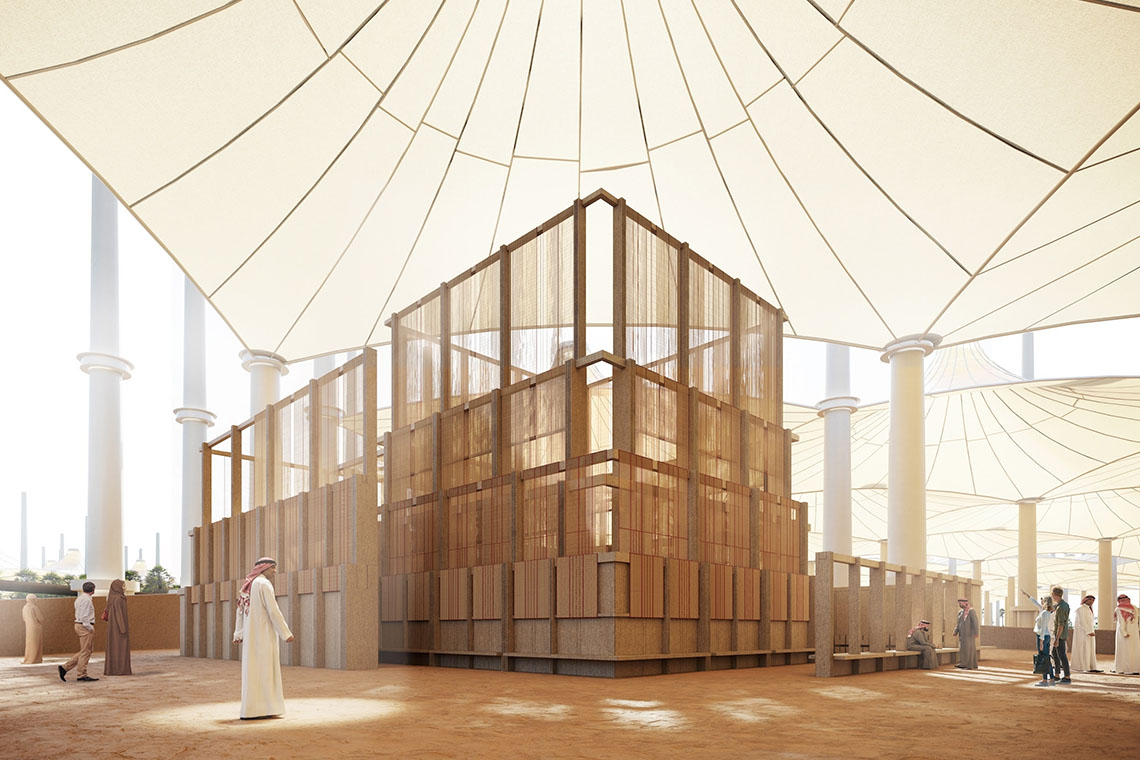The Diriyah Biennale Foundation has announced the winners of the inaugural AlMusalla Prize.
The AlMusalla Prize, as part of the Islamic Arts Biennale, is a new international architectural competition to design an area of prayer and contemplation, a Musalla, on the site of the Islamic Arts Biennale at the King Abdulaziz International Airport in Jeddah, Saudi Arabia which will then be disassembled and rebuilt in a different location at the Biennale’s end.
The Musalla will be inaugurated at the time of the opening of the second edition of the Islamic Arts Biennale on the 25th January 2025. The winning project was selected from a list of shortlisted architects by the jury which includes Prince Nawaf Bin Ayyaf, chair of the jury, as well as Farrokh Derakhshani, Lina Ghotmeh, Azra Akšamija and Ali Malkawi. The project called for teams of artists and engineers to come together to conceive a flexible space which would welcome both Muslims and non-Muslims, sustainable, and easy to reassemble to ensure its longevity.
The winning project has been awarded to EAST Architecture Studio in collaboration with AKT II and Rayyane Tabet. The central ethos of the project is the idea of nearness and closeness in the aspect of prayer in Islam, as well as how artistry and devoutness can merge together. The ecological aspect of the project suggests using waste from date palm trees found around the area to build the main pavilion while being heavily influenced by traditional building methods of the nearby historical AlBalad district in Jeddah. The project is at once a forward-thinking design, while paying homage to tradition and emphasizing the aspect of community found in both Islam and a gathering space such as the locale of the Hajj Terminal, offering an experience of personal contemplation as well as shared spirituality.
Prince Nawaf Bin Ayyaf, jury chair of the AlMusalla Prize: “The winning design brilliantly marries sustainability with an original perspective on Musalla architecture, utilizing not only local materials like palm timber in a modular structure, but also inspired by the rich local tradition of weaving. This interdisciplinary collaboration between architects, an artist, and engineers has resulted in a contemporary interpretation of Islamic architecture that feels both sacred and inclusive. The team’s demonstrated knowledge of architectural heritage, combined with their forward-thinking approach to creating a versatile space, truly embodies the goals of this competition. The result is a revolutionary prototype that utilizes unique construction materials and methods, which will hopefully serve as a blueprint for an incredibly sustainable future of regional architecture that is deeply rooted in local traditions.”
The 2nd Islamic Arts Biennale runs from 25 January until 25 May 2025



